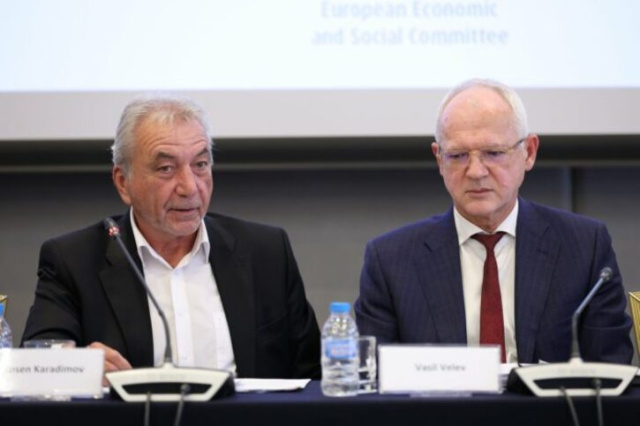
Vasil Velev, Chair of the Bulgarian Industrial Capital Association (BICA), delivered a stark assessment of the European Union’s (EU) economic performance, highlighting concerns over its lackluster growth compared to global counterparts. Speaking at the “Resilient and Efficient Energy for a Future-proof and Secure Economy” forum, Velev expressed apprehension about the EU‘s economic trajectory, citing recent trends and forecasts.
Velev pointed to stagnant GDP growth in the EU, ranging between 0 and 1%, in contrast to more robust growth rates seen in other major economies. While the US, Russia, China, and India have experienced growth rates between 2 and 7%, Europe’s economic expansion has been sluggish by comparison.
Over the past five years, Velev noted, Europe’s share of the global economy has dwindled, a troubling trend exacerbated by increased government spending among EU member states. He attributed this decline to various factors, including Europe’s demographic crisis, which he characterized as a “demographic disaster” in Bulgaria.
Moreover, Velev highlighted societal attitudes towards work and leisure as contributing to Europe’s economic challenges. He criticized policies promoting a reduced workweek and emphasized the need for a more industrious approach to sustain economic growth.
Education also came under scrutiny, with Velev lamenting a shift away from engineering industries and a lack of emphasis on technical skills. Regulatory burdens and energy access issues further compound Europe’s economic woes, according to Velev, hindering innovation and competitiveness.
The forum, organized by BICA and the European Economic and Social Committee in partnership with Veolia Bulgaria, brought together industry leaders and policymakers to address critical issues facing Europe’s economy.
As Velev’s remarks underscore, urgent action is needed to revitalize Europe’s economic landscape and ensure its competitiveness on the global stage.






